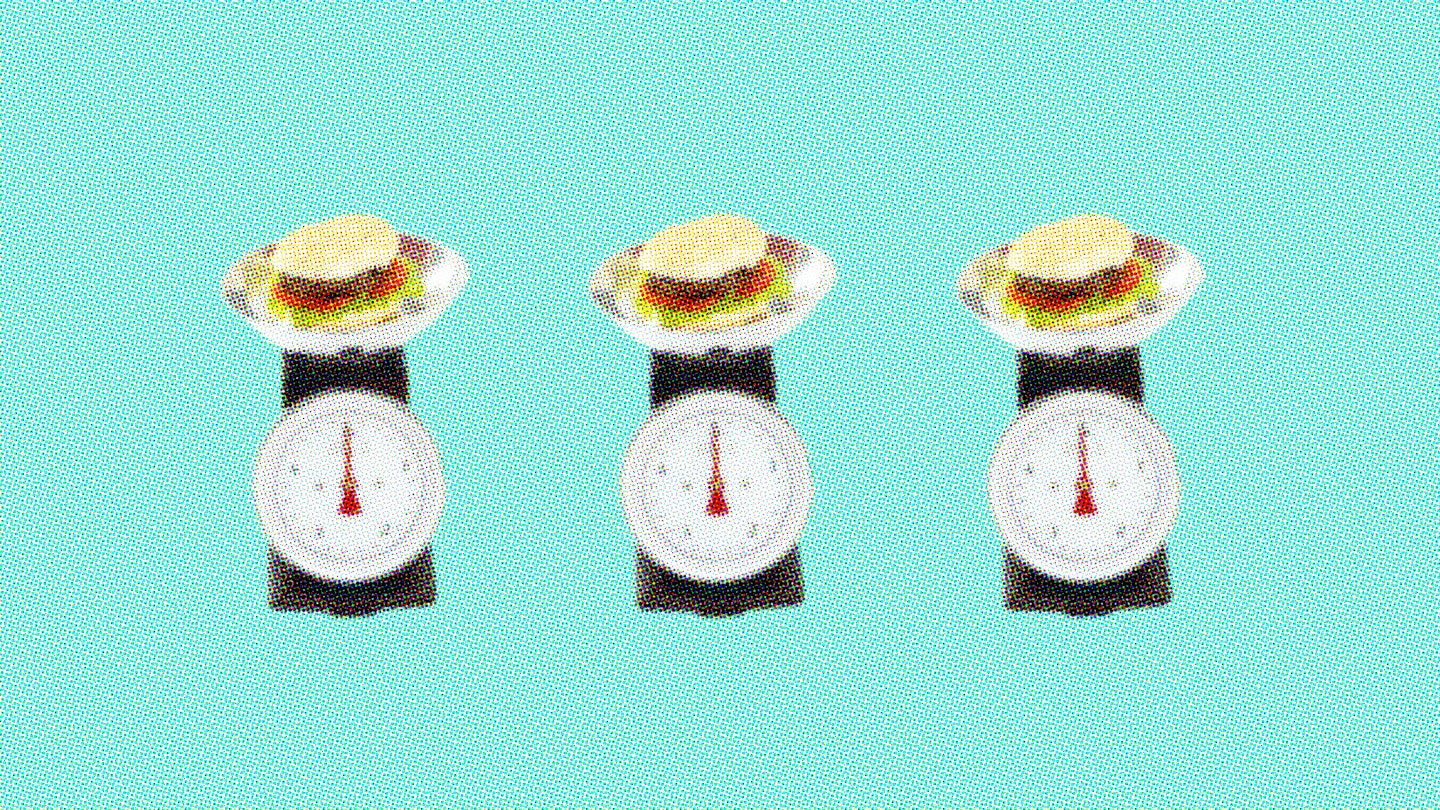As a teen, losing weight and getting fit was ALL about counting calories. We were told women should have this many and men should have this many, end of story. In reality, having a healthy diet is much more complex than sticking to a certain number of calories.
In theory, if you eat less calories than you burn in a day, you will lose weight. If you eat more calories than you burn in a day, you will gain weight. That’s the basic rule of calories, but is it that simple when calories don't necessarily tell you the real nutritional value of something (case en point, avocados)?
Personally, calories confuse the shit out of me. I track my macronutrients every day, that’s proteins, fats and carbs. I can meet all of those requirements and easily be under the number of calories I’m expected to eat. It never makes any sense, so I’ve assumed that calories are bullshit.
However, for many of us, calories are the ONLY way we track our nutrition. It’s the easiest way, to be fair, since you only have to keep track of one number. It’s also reinforced by our government and public health authorities, who only ever seem to produce health information in relation to calories despite numerous reports that they’re not the most efficient way to measure nutritional value.
The latest proof came just today, when it was announced that fast-food chains will soon face a cap on the number of calories in their servings. In an effort to fight obesity in the UK, Public Health England (PHE) has suggested limiting breakfasts to 400 calories and lunch and dinners to 600.
There’s a major red flag here, pointedly that we’re placing restrictions on food instead of educating people on healthy diets or reducing prices of healthier options. Why should we all lose the right to a sausage and egg McMuffin on a hungover Sunday because the government don’t want to find a more practical option? How will a calorie cap even help when you could just eat MORE food because you’re not as full from your normal KFC order?
These are the immediate flaws in the plan, but the thing that strikes me most is this obsession with calories as the most effective way to achieve weight loss or gain goals. Even further, are calories the healthiest mental approach to eating well?
We’re all typical of obsessive behavior at times, but when it comes to weight loss, obsession is a dangerous path to go down. It’s not ridiculous to assume that at some point, on the calorie counting journey, you might consider skipping meals so you can ‘afford’ to have that glass of wine after work. In your head, that doesn’t seem so bad, at least your sticking to your calories. But written down, you can easily see how ridiculous that is.
Helen Adams, nutritionist and member of Nutritionist Resource, can second that:
‘All calories are not the same, so if you start missing meals you mess up your blood sugar then start to feel "hangry", and that’s not good for anybody. I’d say rather than do that, just go back to the simple things “what does your plate look like?”’
The ‘what does your plate look like’ technique is something Helen teaches her clients, in an effort to move away from calorie counting towards developing a healthier, life skill. She said:
‘I actually discourage people from counting calories, instead I do it on the basis of what their plate looks like. If they can think of their plate as half being non-starchy vegetables, one quarter being protein and one quarter being carbs then on that basis its quite hard to overeat. The vegetables make you full and it encourages you to learn what is a carbohydrate? What is a protein? We use these words but very often people aren’t too sure what they are.’
It also discourages going down that dangerous path of obsessing over weight loss. She states that her technique ‘makes people feel better and then actually wanting to count calories and reach a certain weight seem to go away as they start to feel better.’
While calories may be a useful tool initially, for someone who has no idea about portion sizes or healthy eating, Helen doesn’t believe it’s a sustainable tool for measuring weight loss, especially if you’ve suffered with mental health issues.
‘Anybody who has mental health issues, of any kind, I would say don’t count calories. Anyone who has fatigue, because that will make it worse or anybody who is overly health conscious -who exercises very heavily and doesn’t take in enough - I would say don’t go there because it’s not going to help. ‘
It’s easy to let dieting get out of control, even in my weight gain journey (I know, you’re rolling your eyes) I found myself obsessing over meeting certain goals. I, like many women, use an app to track progress towards my goals, but I’ve developed a mechanism for avoiding becoming obsessed.
Whenever I notice myself even remotely avoiding something I really want to eat or do, I’ll stop counting. You can’t miss out on after work drinks purely because you’ll go 176 calories over your goal. While being healthy is important, it shouldn’t result in not living your life.
Even not counting for a week gives you back some of that perspective you may’ve lost, and if you’re doing it correctly and developing healthy habits, stopping counting doesn’t mean gorging on Domino’s pizza and Ben ‘n’ Jerrys all week. If that’s what you find yourself doing, you know your diet isn’t sustainable and isn’t right for you. Healthy eating should be a lifestyle change, not a short-term, ‘let’s get fit for Summer’ (now I’m rolling my eyes) goal.
With that being said, I’m off to McDonald’s before the PHE ruin my nuggets…
This article originally appeared on The Debrief.
